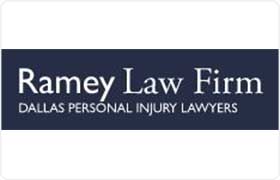Grapevine DUI-DWI Lawyer, Texas
Sponsored Law Firm
-
 x
x

Click For More Info:
-
Ramey Law Firm
3890 West Northwest Hwy Suite 650 Dallas, TX 75220» view mapAccident & Injury Law Personalized Legal Representation
he Ramey Law Firm of Dallas, Texas specializes in handling personal injury cases.
972-437-5577
Michelle Lyn Poblenz
Divorce & Family Law, Traffic, Criminal, DUI-DWI
Irving, TX Family Law & Criminal Defense Attorney
Clients come to me during dark or difficult moments in their lives, seeking guidance and clarity on what to expect from the legal process. My primary ... (more)
David Shuster
DUI-DWI, Bankruptcy, Construction, Personal Injury, Mass Torts
Status: In Good Standing Licensed: 22 Years
FREE CONSULTATION
CONTACT Hardin Ramey Dallas, TX
Hardin Ramey Dallas, TX


